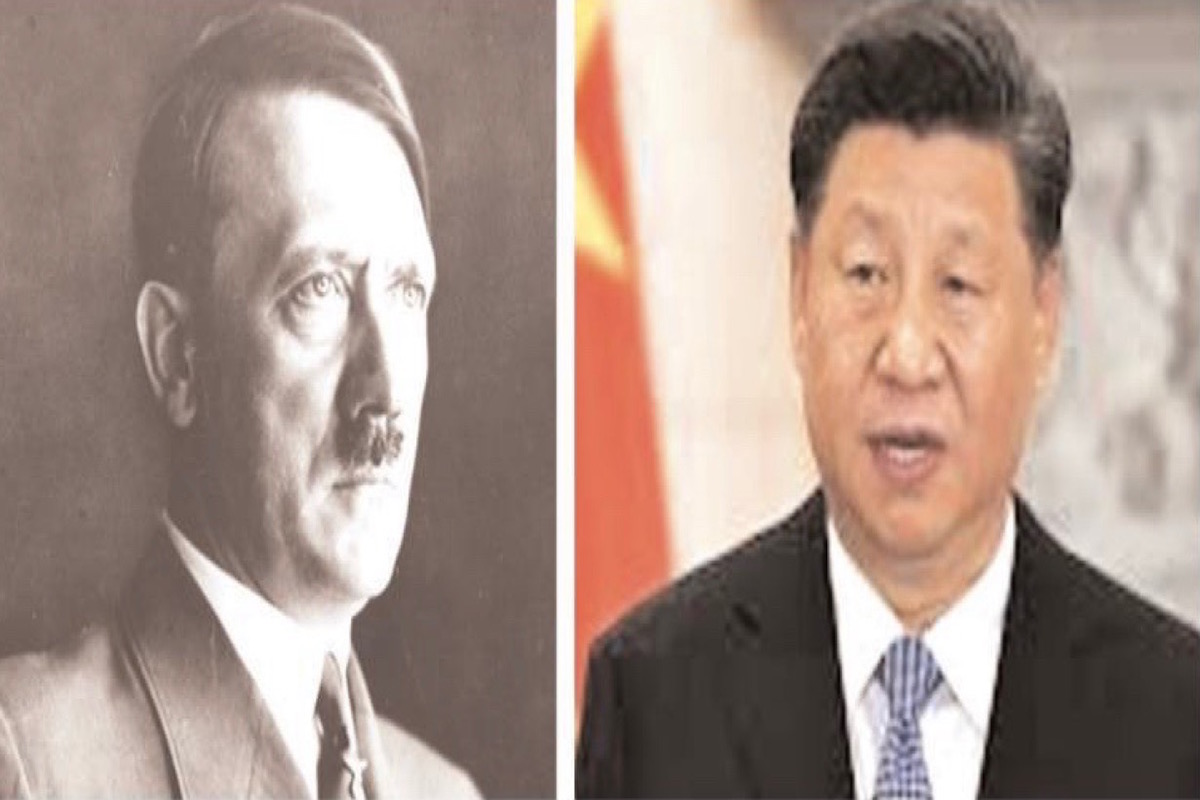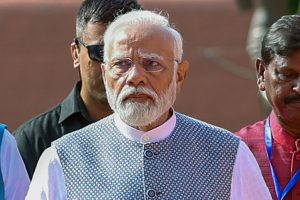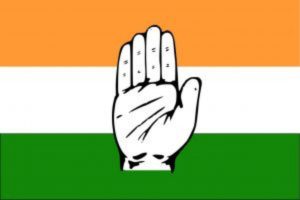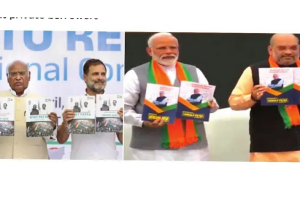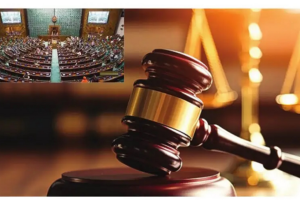Not so long ago, General Chi Haotian of the People’s Liberation Army (PLA) of China said, “Only countries like the United States, Canada and Australia have the vast land to serve our need for MASS COLONIZATION”. Evidently, he forgot to think of Siberia, which is comparably vast and scarcely populated, and more convenient to capture because of its neighbouring location. The general’s words “for mass colonization” in the German language would be lebensraum or living space. Incidentally, a search for lebensraum was Adolf Hitler’s excuse for conquering Europe. This was set out in detail by Hitler in his notorious autobiography Mein Kampf.
Xi Jinping, China’s president for life, does not appear to have written his biography, but his will to dominate the world is nevertheless as eloquent as any spelt out in Mein Kampf. The question is that many a country is anxious to stop Xi from going ahead with feeding his greed, but how many are willing to actually act? All of Europe knew of the danger Hitler posed; but many wanted “peace in our time” in the words of then British Prime Minister Neville Chamberlain. This was after he and French Prime Minister Édouard Daladier met Hitler at Munich in 1938, along with Italian Duce Benito Mussolini. Neither prime minister had a conscience about surrendering to Hitler one of the three regions of what is today the Czech Republic. They endorsed his gobbling up of Sudetenland, leaving behind only Moravia and Bohemia; which also were unilaterally gobbled up by the Nazis within six months.
Uncannily, Xinjiang as well as Tibet were grabbed by China with comparable lack of conscience on the morrow of Mao Zedong’s successful revolution in 1949, ten years after Hitler’s misappropriations. On both occasions, the rest of the world watched with cool indifference. How many more million kilometres does the yellow giant wish to trample upon?
Adolf Hitler came to power in 1933 and committed suicide in 1945, in all 12 years, whereas Xi Jinping, at age 67, may have a good number of years to go. Fortunately, the US has shown it is not oblivious to the Chinese threat. It has appointed a special coordinator to talk directly to the representative of the Tibetan government in exile, a post that had been vacant for long. Robert Destro, the new American special coordinator for Tibet’s issues, will directly talk to the Tibetan people through its governmentin- exile headquartered in Dharmasala, in Himachal Pradesh in India. This is an opportune US initiative which His Holiness the Dalai Lama should respond to with vigour. First, he should be free to publicly tell the young citizens of Tibet to come over to Mcleod Ganj. If they like, he would guarantee their employment, perhaps as his bodyguards and in other echelons of his government in exile. He should not be shy of taking American help. The combination of American readiness, India being far better equipped than before, and above all, China having antagonized many a country is a potent one. It would be unfortunate for the people of Tibet if the Dalai Lama does not get into an initiative mode. Opportunity does not materialize every day, which he well knows. Napoleon once defined destiny as “catching luck while it is flying”. Above all, he should immediately nominate his successor.
In all probability, the world could have been in a happier situation had President Richard Nixon and his Secretary of State Henry Kissinger not shown haste to go to Beijing to pay their respects to Mao Zedong in 1972. Their reasoning was that the Soviet Iron Curtain was impenetrable whereas the Chinese Bamboo Curtain was easier to enter. So, they entered the Red world and opened the gates of the free world for China to exploit any or every economy. Never mind that between Mao’s conservatism, Deng Xiao Ping’s enterprise and Xi Jinping’s aggressiveness, there isn’t much difference. It would now appear that the World Trade Organization (WTO) was promoted unwittingly for the sake of Chinese exports. It is difficult to think of a country that has benefitted, over a period, by importing Chinese materials. Yes, in the short run, China helped its clients to reduce their costs of production, but given a few years, they became helplessly dependent. Take for instance, an item like the toothbrush. For the nylon bristles, every manufacturer is dependent on the yellow giant. There are Western manufacturers of nylon bristles in India, but they too have to depend on China for the import of some of the raw materials. Why were the Chinese costs of production, across the board, lower than the world’s? The new entrepreneur was leased land for practically no rent. To build the factory, the banks lent him term loans, often at rates as low as one per cent per annum. He was seldom harassed for neglecting repayment of the loan. So long as he produced hard currency exports to the tune of say 75 per cent of his production, such an exercise amounted to converting the renminbi, the Chinese currency, into the dollar.
The smaller entrepreneurs did not have to go out of China to look for markets. Public sector agencies identified which country imports what and consumes which products. Most such Chinese manufacturers operated their export business with the help of English-speaking Chinese agents. This is the package which enabled the Chinese to supply even Ganesh murtis at prices lower than that of any other supplier. With the foreign exchange thus earned and accumulated, China extends loans to smaller countries, whether Sri Lanka, Myanmar, Kenya or other countries in Africa. If any borrower happens not to abide by the terms of repayment, its national assets, given as collateral security, are taken over; for example, Hambantota port near Galle in Sri Lanka. Even as this is being written, there are reports of thousands of Chinese citizens fleeing Hong Kong, out of fear of the next wave of crackdowns by China. The exodus is mainly to the UK. “The Hong Kong we knew no longer exists” is the common refrain. The Trump administration imposed sanctions against China for what was identified as China’s covert war on the US. It can now be said that the Covid-19 pandemic, which has devastated the world, has been unleashed on the world by China ~ it is being termed the Wuhan virus with good reason. Global outrage against China, which was initially muted, is now becoming more vocal.
For India particularly, China’s bellicosity and aggression on the Ladakh border is a reminder that all displays of bonhomie notwithstanding, the neighbour is not going to change its attitude. China views India as a rival to be cut down to size. The fact that India has, under Narendra Modi, shed its timidity and is ready to stare the dragon in the eye is even more infuriating. China’s support for Pakistan, a known sponsor of jihadi terrorism has been to keep India on the boil. Hitler in 1939 spoke of the non-aggression pact and referred to Germany’s friendship with Poland as “one of the calming phenomena of European political life.” That ‘calm’ could not last even eight months. China under Mao similarly spoke of friendship and amity with India. Its premier Chou En Lai signed the Panchsheel Treaty in 1954, only to stab India in the back in 1962. Earlier in 1959, China invaded Tibet and has been illegally occupying it ever since, not to mention the unrelenting genocide of Tibetans and ceaseless attempts to wipe out Tibet’s culture.
Its northeastern province of Xinjiang, home to the Muslim Uiygur community who do not see themselves as Chinese is the target of the communist state’s brutal repression and slow genocide, which has intensified after Xi came to power. Any “businessas- usual” approach to China therefore, is like the appeasement of Hitler in the run up to WWII.

